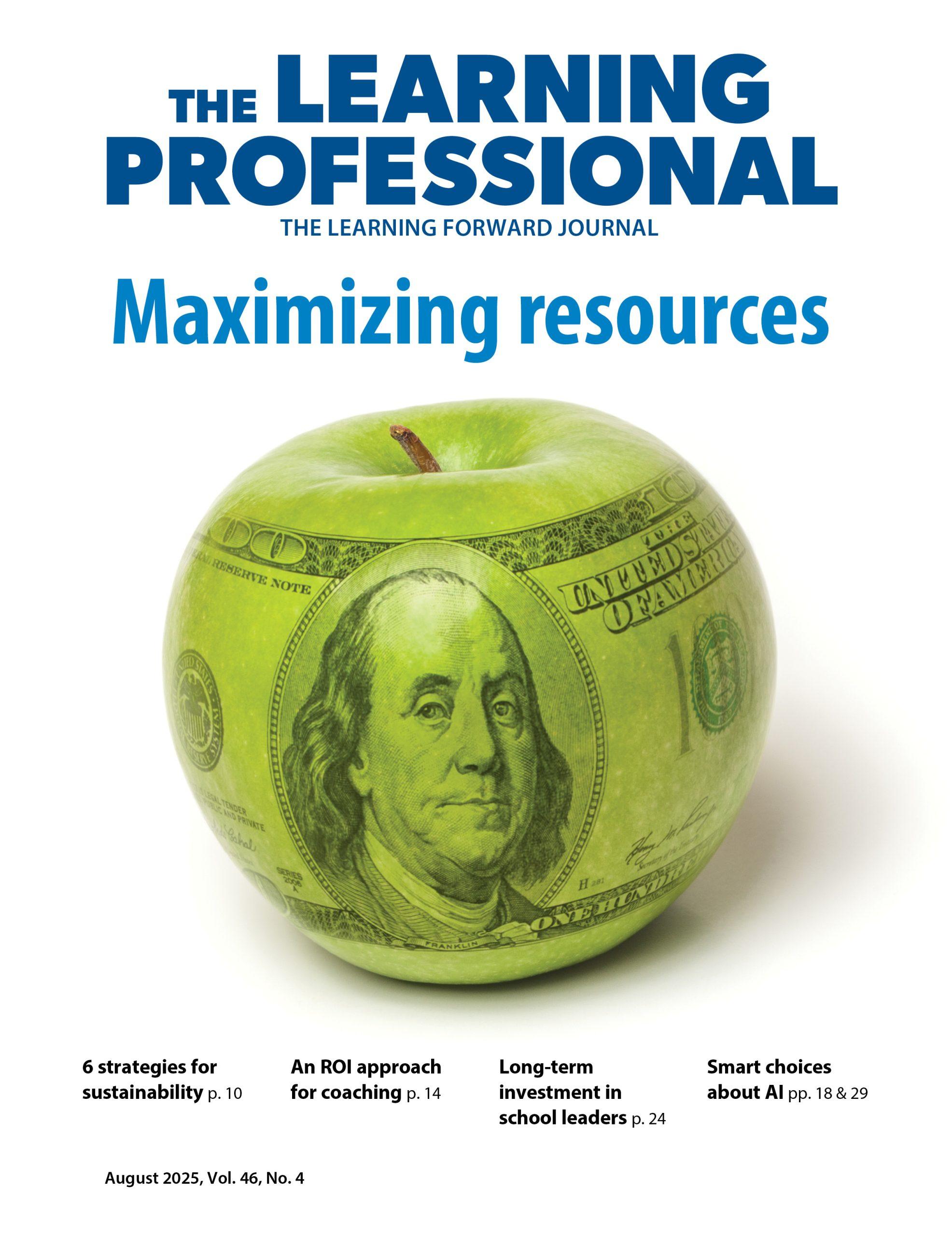Don't Just Survive — Thrive!
Develop professional capital to help teachers thrive in times of great change
By Learning Forward
Categories: Learning designs, Teacher leadershipDecember 2015
Read the remaining content with membership access. Join or log in below to continue.
Sed ut perspiciatis unde omnis iste natus error sit voluptatem accusantium doloremque laudantium, totam rem aperiam, eaque ipsa quae ab illo inventore veritatis et quasi architecto beatae vitae dicta sunt explicabo. Nemo enim ipsam voluptatem quia voluptas sit aspernatur aut odit aut fugit, sed quia consequuntur magni dolores eos qui ratione voluptatem sequi nesciunt. Neque porro quisquam est, qui dolorem ipsum quia dolor sit amet, consectetur, adipisci velit, sed quia non numquam eius modi tempora incidunt ut labore et dolore magnam aliquam quaerat voluptatem.
What Makes Beyond Our Own Walls Unique
These rounds are framed as an opportunity for the observing teachers to be selfish, to focus on their own practice, and to look for what they can take away to continue to refine their practice. This invitation to be critical consumers creates a level playing field where everyone’s professionalism is valued.
The philosophy of appreciative inquiry and focus on developing social capital create a learning environment where teachers feel safe to be innovative and take risks in their pursuit of excellence.
Beyond Our Own Walls is constructed around a belief that if we are all professionals, if we have exposure to experts and professional text, then we can gain knowledge and expertise from watching and dialoging about any colleague’s lesson, not just a master lesson unique to the master teacher teaching it.
As teachers became critical consumers of the possibilities of instructional rounds, their investment increased, and we became a learning community committed to improvement with the self-efficacy to know we have what it takes to bring about positive change that impacts student achievement.
References
Cooperrider, D. & Whitney, D. (2005). Appreciative inquiry: A positive revolution in change. San Francisco, CA: Berrett-Koehler.
Dweck, C. (2007). Mindset: The new psychology of success. New York, NY: Random House.
Guskey, T.R. (2000). Evaluating professional development. Thousand Oaks, CA: Corwin Press.
Hargreaves, A. & Fullan, M. (2012). Professional capital: Transforming teaching in every classroom. New York, NY: Teachers College Press.
Marzano, R. (2007). The art and science of teaching: A comprehensive framework for effective instruction. Alexandria, VA: ASCD.
Learning Forward is the only professional association devoted exclusively to those who work in educator professional development. We help our members plan, implement, and measure high-quality professional learning so they can achieve success with their systems, schools, and students.
Categories: Learning designs, Teacher leadership
Recent Issues
MEASURING LEARNING
June 2025
To know if your professional learning is successful, measure educators’...
NAVIGATING NEW ROLES
April 2025
Whether you’re new to your role or supporting others who are new,...
LEARNING DESIGNS
February 2025
How we learn influences what we learn. This issue shares essential...
BUILDING BRIDGES
December 2024
Students benefit when educators bridge the continuum of professional...









